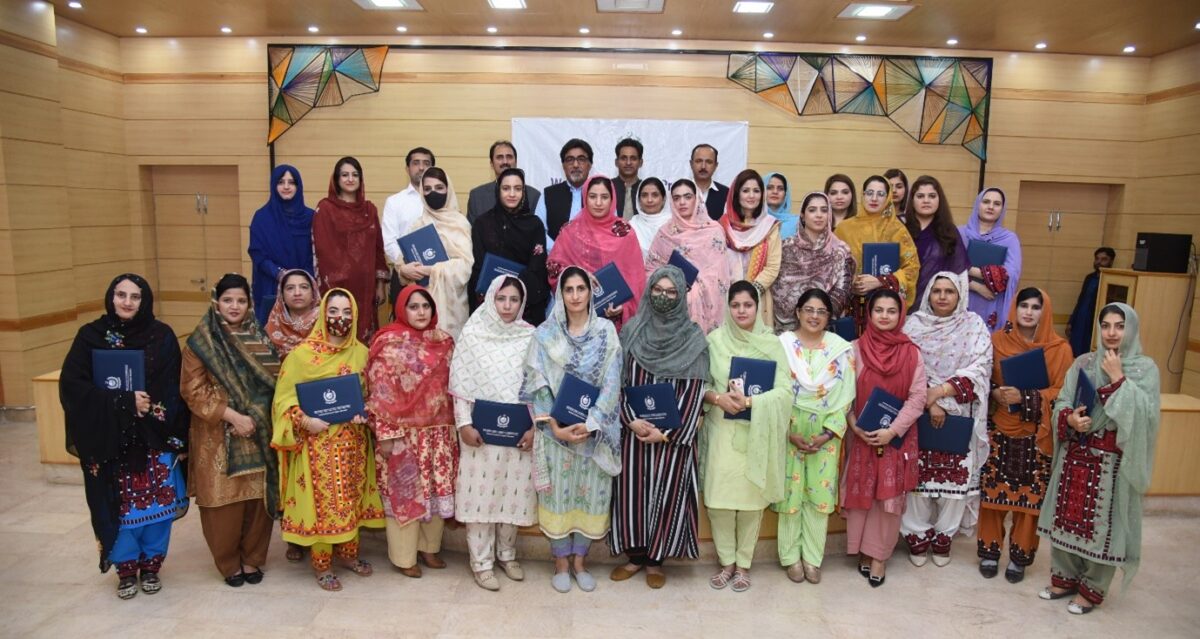Islamabad, Sep 10: While women make up a large portion of the faculty at all Pakistani higher education institutions, their presence in senior jobs is still very low. For this reason, the Higher Education Commission (HEC) has made a commitment to strengthening women’s leadership in the higher education sector.
In response, HEC launched the Women Leadership Programme three years ago as part of the Higher Education Development in Pakistan (HEDP) project, according to a news release issued on Tuesday.The Women Leadership Program is one of the major ways that HEDP is bolstering HEC’s National Academy of Higher Education (NAHE). In all four of Pakistan’s major provinces, 161 women leaders have previously received training through the Women Leadership Program.
The program provided training on topics such as public procurement regulations, financial management, strategic communication, work-life balance management, gender and workplace communication, recruiting policies, and governance in higher education for both academic and non-academic staff. Along with offering possibilities for professional and personal growth, the program introduced participants to global best practices for women in leadership.
One of the program’s alumni, who is currently serving as vice chancellor of the coeducational Shaheed Allah Baksh Soomro University of Arts, Design and Heritage, Jamshoro, one of Sindh’s public universities, has advanced significantly in their careers.
As the HEDP project reaches maturity, HEC made the decision to continue this program and create female mentors who, through a cascade model, teach and develop additional female leaders in the academic sector, thereby empowering a greater number of female employees in Pakistani institutions. The program, known as the Women Empowerment and Mentoring Program (WEMP), would also support the development of leadership skills and provide crucial assistance in attaining a good work-life balance.
Through network building, interest advocacy, and career advancement, the program continues to support participants by matching them with senior leaders in higher education to serve as mentors. We are nearing the end of this program’s development.
The inaugural meeting of the WEMP committee took place on June 24, 2024, following notification in June of current year. It has held seven sessions so far, with the most recent consultation session serving as the penultimate gathering to determine its final details.
Tahir Abbas Zaidi, NAHE Program Coordinator, and Dr. Afshan Tehseen, former chair of the National Commission on the Rights of the Child, Islamabad. The help of HEDP for WEMP, HEC hopes to encourage future female leaders in HEIs and HEC while also providing a role model for Pakistan’s female population, which makes up almost half of the country’s total population. It would be a three-month pilot program, the first of its type in the academic sector, with mentors and mentees following an organized path to support mentees in realizing their career goals.
After a successful review, this mentorship program will be implemented as a pilot project in a few chosen universities. HEC will then intervene to change policy to make it a permanent element in all HEIs. Initiatives such as these are hoped to contribute to the growth of the country by fast-tracking the representation of women in leadership roles in Pakistani higher education. In the future, HEC intends to maintain it by implementing a policy intervention to make it a permanent element in all HEIs.
HEDP is a 400 million USD flagship project of HEC with the goals of enhancing teaching and learning, bolstering governance in higher education, and supporting research excellence in economically significant industries. For additional project information, please go to the HEDP section on HEC website.









